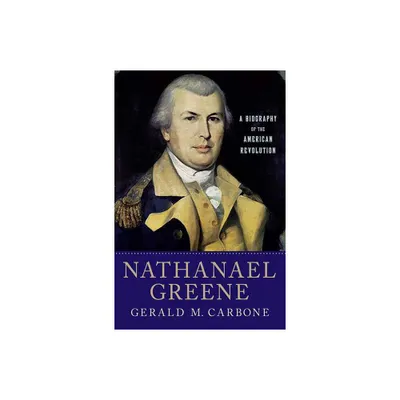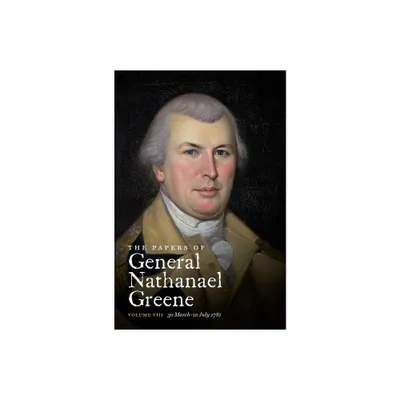Home
the Quaker and Gamecock: Nathanael Greene, Thomas Sumter, Revolutionary War for Soul of South
Loading Inventory...
Barnes and Noble
the Quaker and Gamecock: Nathanael Greene, Thomas Sumter, Revolutionary War for Soul of South
Current price: $34.95


Barnes and Noble
the Quaker and Gamecock: Nathanael Greene, Thomas Sumter, Revolutionary War for Soul of South
Current price: $34.95
Loading Inventory...
Size: Hardcover
*Product Information may vary - to confirm product availability, pricing, and additional information please contact Barnes and Noble
A joint biography of Nathanael Greene and Thomas Sumter and the Southern campaign of the American Revolution.
As the newly appointed commander of the Southern Continental Army in December 1780, Nathanael Greene quickly realized victory would not only require defeating the British Army, but also subduing the region's brutal civil war. "The division among the people is much greater than I imagined, and the Whigs and the Tories persecute each other, with little less than savage fury,” wrote Greene.Part of Greene’s challenge involved managing South Carolina's determined but unreliable Patriot militia, led by Thomas Sumter, the famed "Gamecock." Though Sumter would go on to a long political career, it was as a defiant partisan that he first earned the respect of his fellow backcountry settlers, a command that would compete with Greene for status and stature in the Revolutionary War's "Southern Campaign."Despite these challenges, Greene was undaunted. Born to a devout Quaker family, and influenced by the faith's tenets, Greene instinctively understood the war's Southern theater involved complex political, personal, and socioeconomic challenges, not just military ones. Though never a master of the battlefield, Greene's mindful leadership style established his historic legacy.
The Quaker and the Gameccock
tells the story of these two wildly divergent leaders against the backdrop of the American Revolution's last gasp, the effort to extricate a British occupation force from the wild and lawless South Carolina frontier. For Greene, the campaign meant a last chance to prove his capabilities as a general, not just a talented administrator. For Sumter, it was a quest of personal revenge that showcased his innate understanding of the backcountry character. Both men needed the other to defeat the British, yet their forceful personalities, divergent leadership styles, and opposing objectives would clash again and again, a fascinating story of our nation's bloody birth that still influences our political culture.
As the newly appointed commander of the Southern Continental Army in December 1780, Nathanael Greene quickly realized victory would not only require defeating the British Army, but also subduing the region's brutal civil war. "The division among the people is much greater than I imagined, and the Whigs and the Tories persecute each other, with little less than savage fury,” wrote Greene.Part of Greene’s challenge involved managing South Carolina's determined but unreliable Patriot militia, led by Thomas Sumter, the famed "Gamecock." Though Sumter would go on to a long political career, it was as a defiant partisan that he first earned the respect of his fellow backcountry settlers, a command that would compete with Greene for status and stature in the Revolutionary War's "Southern Campaign."Despite these challenges, Greene was undaunted. Born to a devout Quaker family, and influenced by the faith's tenets, Greene instinctively understood the war's Southern theater involved complex political, personal, and socioeconomic challenges, not just military ones. Though never a master of the battlefield, Greene's mindful leadership style established his historic legacy.
The Quaker and the Gameccock
tells the story of these two wildly divergent leaders against the backdrop of the American Revolution's last gasp, the effort to extricate a British occupation force from the wild and lawless South Carolina frontier. For Greene, the campaign meant a last chance to prove his capabilities as a general, not just a talented administrator. For Sumter, it was a quest of personal revenge that showcased his innate understanding of the backcountry character. Both men needed the other to defeat the British, yet their forceful personalities, divergent leadership styles, and opposing objectives would clash again and again, a fascinating story of our nation's bloody birth that still influences our political culture.


















